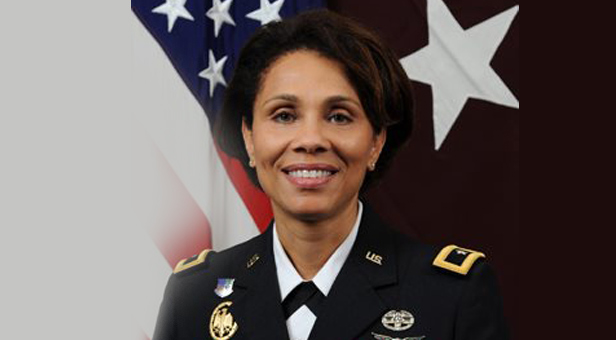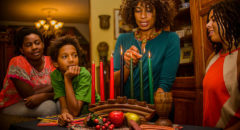
Army Surgeon General Nadja West is the first female African-American three-star general in US Army history, the highest-ranking woman ever to graduate from West Point, a wife and mother of two. She's also a physician and now U.S. Army's surgeon general.
It's hard to believe that this accomplished and highly decorated woman, struggled to believe in herself like many of us do. Her story shows that even the toughest and most powerful women have overcome that little voice in our heads that tell us we aren't good enough, aren't smart enough, aren't pretty enough or just plain aren't enough to get what we want.
"My parents always said of course you can do anything you want, but I never did," West told CNN. "I would always have confidence issues: 'I don't think I can do that.'"
West, 56, was filled with self-doubt as she began her career -- especially in her decision to pursue medical school. She says it was a random elevator encounter with a West Point alumnus that started her on her journey to get over her fears.
"He asked me about what I was interested (in), and I said, 'Well, I was interested in going to medical school, but I don't think I'll be able to get in.' And he's like, 'What's wrong with you? You know, why do you think that?'"
"I went from an orphan with an uncertain future to be able to be leading an incredible organization of men and women in Army medicine. It's very humbling," she said.
West was adopted at age 2 by a military family in the Washington, DC, area with 11 other adopted children. She frames the difficult circumstances of her early childhood with gratitude.
"My mom decided that she couldn't take care of me or didn't want to take care of me," West said. "I'm just very thankful that she decided to give me a chance at life because you could have had other options."
West's adoptive mother was from Hot Springs, Arkansas, and was the granddaughter of slaves.
"She remembered talking to her grandmother and shared stories," West said. West's mother decided on adoption when she wasn't able to have children of her own because of scar tissue from a ruptured appendix that she couldn't afford to have removed.
Her adoptive father joined the Army in 1939, when it was still segregated.
"He stayed with it for 33 years because he believed in it, in our nation, and believed in the changes that were occurring in the military well before society," West said.
"He said that he could see that ... once you get to know a person and you get to see your soldiers, they're just like anyone else."
Ten of her family's 12 adopted children went on to serve in the military, and as the youngest, West says she was inspired from an early age by her father and her older siblings.
West said that growing up in the 1960s, she was also inspired by the television show Star Trek. Seeing Lt. Uruha, played by Nichelle Nichols, on the mall screen each week gave her an early example of a woman in uniform.
"It was like no big deal to see women on the bridge of a military organization," she said.
West went on to apply to the US Military Academy at the encouragement of her brother; she was accepted into the third class that allowed women, in 1978.
West graduated from West Point and then medical school at The George Washington University. She then went back to the Army as a medical officer and served in the first Gulf War.
As a captain in Operations Desert Shield and Desert Storm, her commander put faith in her abilities over the fact that she was a woman.
"He asked, 'Doc, can you fix broke soldiers.' And I said, 'Yes, sir, I can.' And he says, 'Glad to have you aboard. Glad to have you with us.' And so he didn't ask me where I went to medical school and ask what my grades were. He looked me in the eye and asked me if I could do that. And in my heart of hearts, I would do the darndest I could to live up to that."








